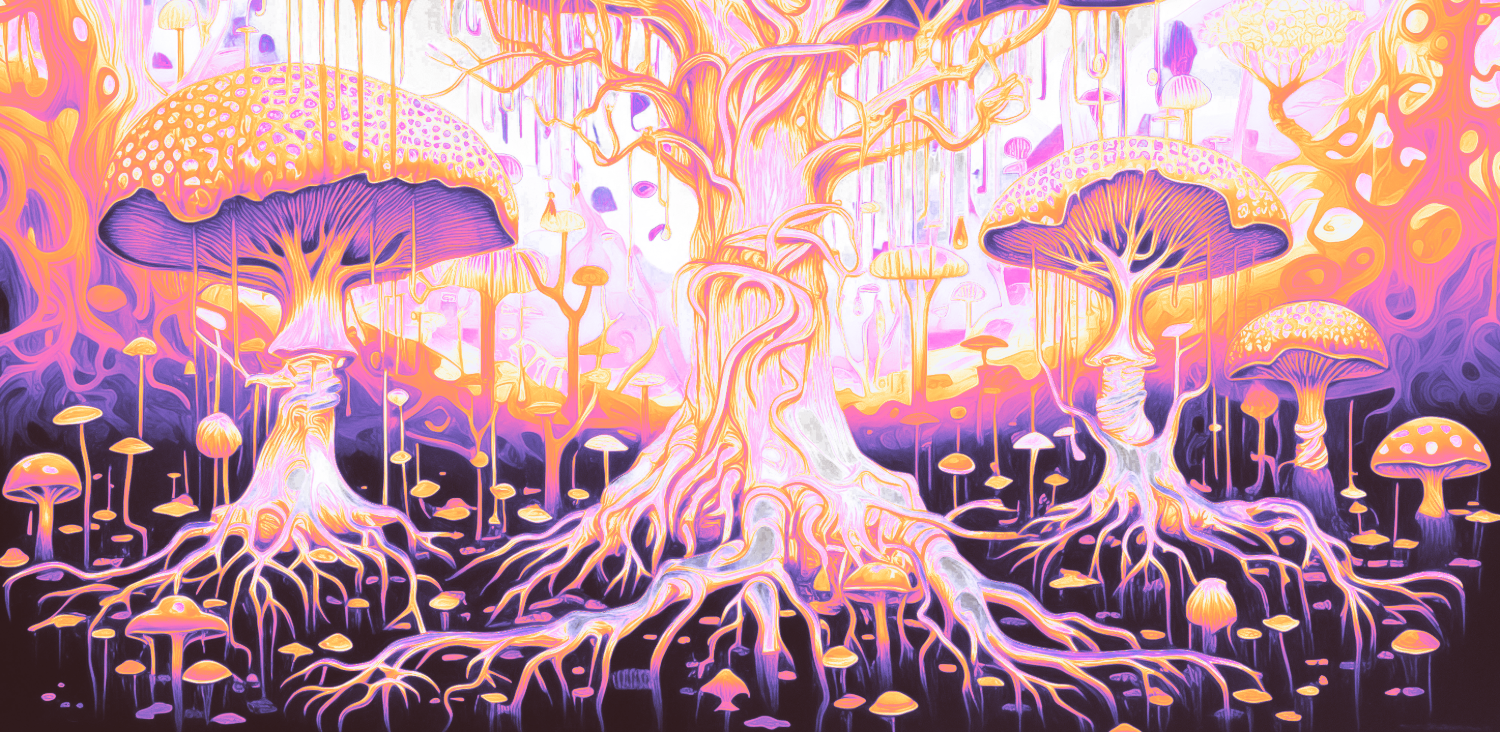
Exploring MycoFi: Mycelial Design Patterns for Web3 & Beyond
Exploring economic systems inspired by mycelial networks—where cooperation, redistribution, and mutual aid create resilient, regenerative communities.
Interconnected
Like mycelial networks, economic systems thrive through connection
Regenerative
Building systems that restore and enhance rather than extract
Cooperative
Mutual aid and solidarity over competition and extraction
What is MycoFi?
MycoFi (Mycelial Finance) is an exploration of mycoeconomics—economic systems inspired by the intelligence of fungal networks. Just as mycelium redistributes nutrients through underground connections, MycoFi envisions decentralized financial systems built on cooperation, mutual aid, and regenerative principles.
By emulating nature's evolutionary resource allocation algorithms, we can design Web3 protocols and economic structures that prioritize collective wellbeing over extractive growth—moving from currency monocultures to diverse, resilient permaculture currencies.
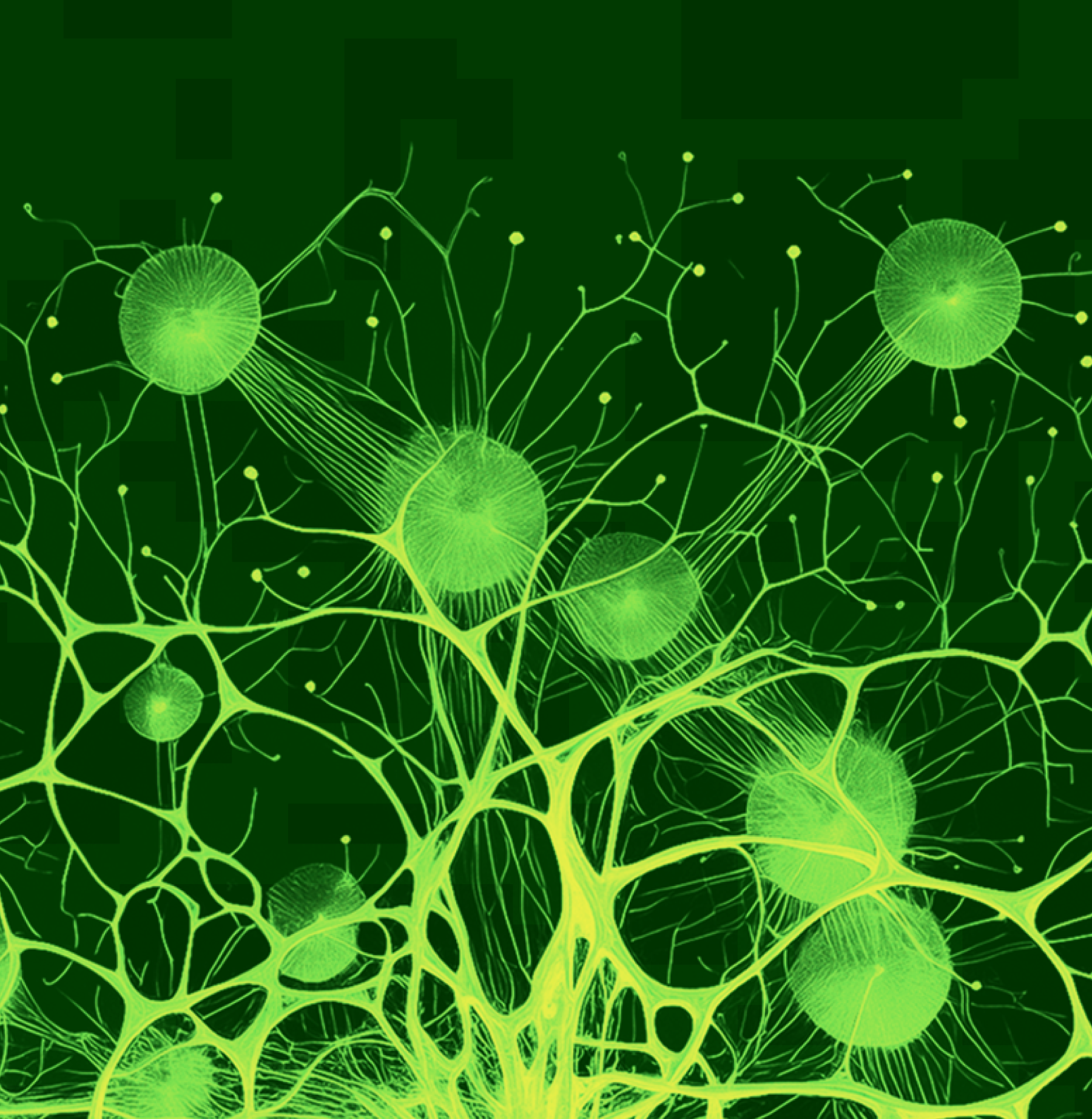
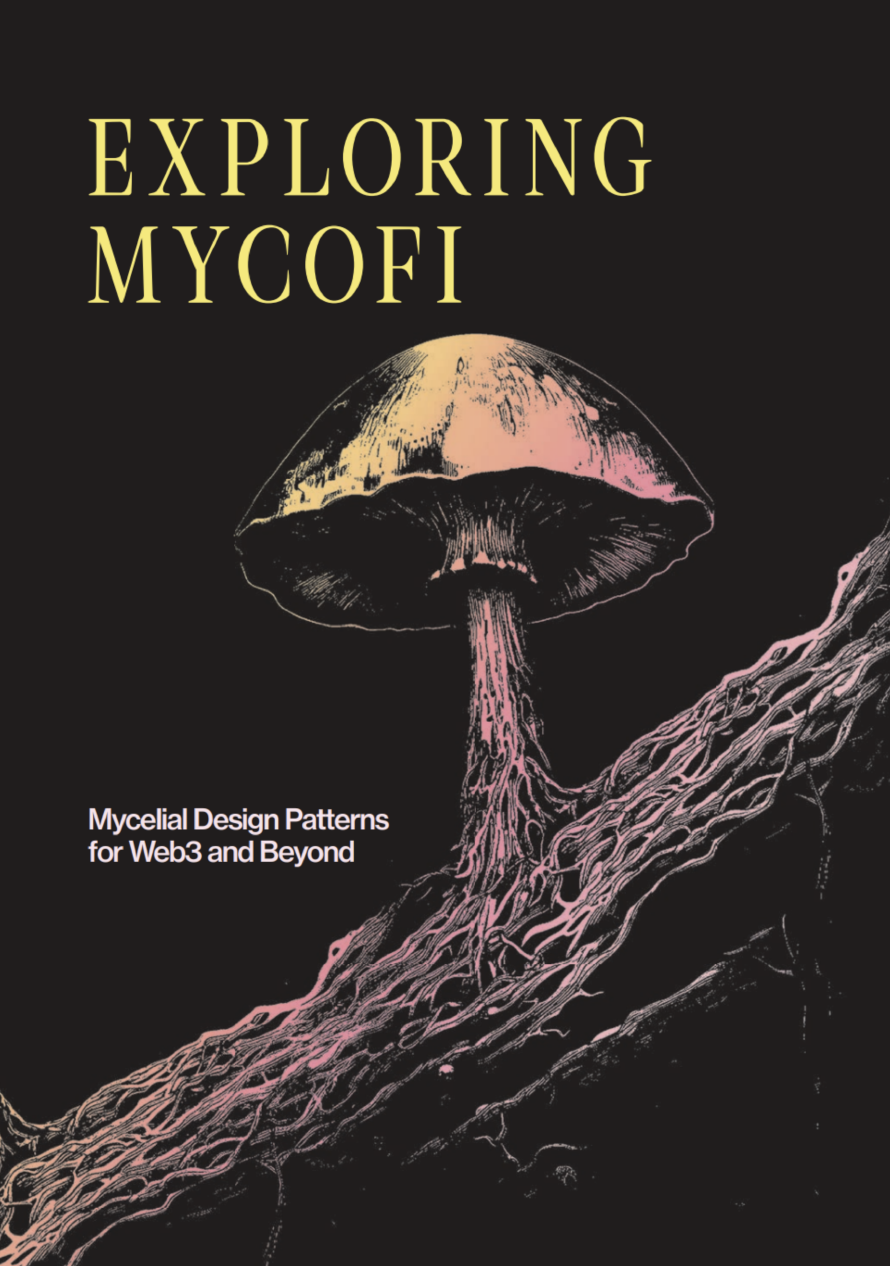
Exploring MycoFi
Mycelial Design Patterns for Web3 and Beyond
Discover how nature's most sophisticated network architecture can inspire the next generation of decentralized systems. This book explores the intersection of mycology, economics, and Web3 technology.

From Monoculture to Permaculture Currencies
Emulating nature's evolutionary resource allocation algorithms in economic systems design
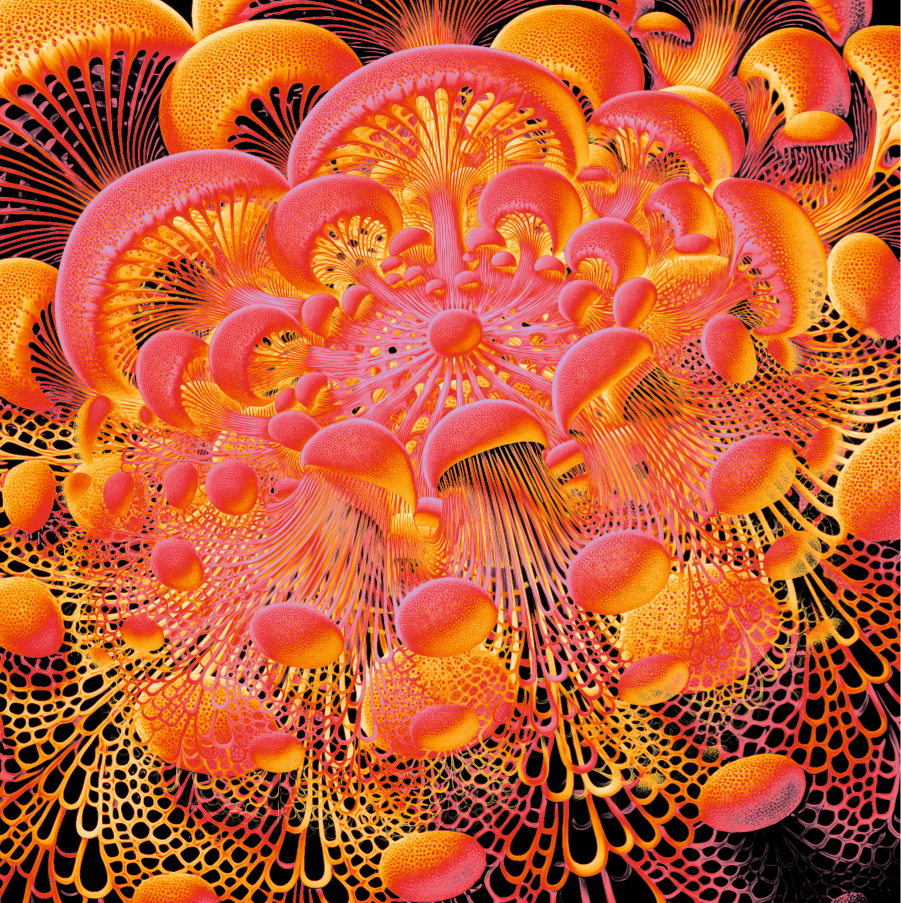
Currency Monocultures
Modern economics emerged alongside imperialist expansion, imposing monocultures of colonizing currencies that undermine collective health and indigenous wisdom.
By collapsing all value into the singular unit of bank-issued money, capitalism erodes all other sources of value. The immeasurable wealth provided by social and environmental benefits is extracted into dollars by the unyielding logic of profit-maximization.

Permaculture Currencies
Like mycelial networks that redistribute a plethora of resources through underground connections, we can design multi-dimensional economic systems capable of representing multiple localized forms of value.
By enabling the localized production of alternative currencies, purpose-driven groups of people can recognize commitments of care and societal regeneration, participating in economies based on cooperation and mutual aid.
Learning from Fungi
Since the dawn of life on Earth, fungi have played a pivotal role in the networked redistribution of life-sustaining resources on a global scale.
Mother trees intelligently redistribute their photosynthesized sustenance among their kin through underground mycelial networks—a living example of resource sharing and collective care.
Everything alive today owes a debt of gratitude to the upward trophic flows of energy resulting from mycelial economies over time immemorial.


Society is Trippin Balls
Our collective hallucination of infinite growth on a finite planet has us chasing extractive capitalism down a rabbit hole of ecological collapse. Envisioning the end of the world before the end of capitalism is a societal-scale bad trip.

Post-Appitalism Awaits
A key part of post-capitalism is post-APPitalism—where decentralized applications dissolve the silos of traditional app models (premised on capitalist value extraction) to enable new technologies for collective flourishing.
The Mycelial Vision
Exploring the intersection of natural systems, regenerative economics, and decentralized coordination
Just as mycelium breaks down dead matter to create fertile soil, we can transform dying economic structures into nourishment for new regenerative systems. Composting capitalism invokes the cycles of decay and renewal inherent in natural ecosystems, recognizing that institutional senescence and the end of extractive systems creates the conditions for regenerative abundance.
Psilocybernetics explores how mycelial wisdom and cybernetic systems thinking converge to create new models of collective coordination. Like mycelial networks that process distributed information, we can design systems that enhance collective intelligence and distributed decision-making with new forms of economy, democracy, and technology.
Born from Mycopunk
MycoFi emerged from the Mycopunk movement—a regenerative, networked approach to building resilient systems inspired by fungal wisdom.
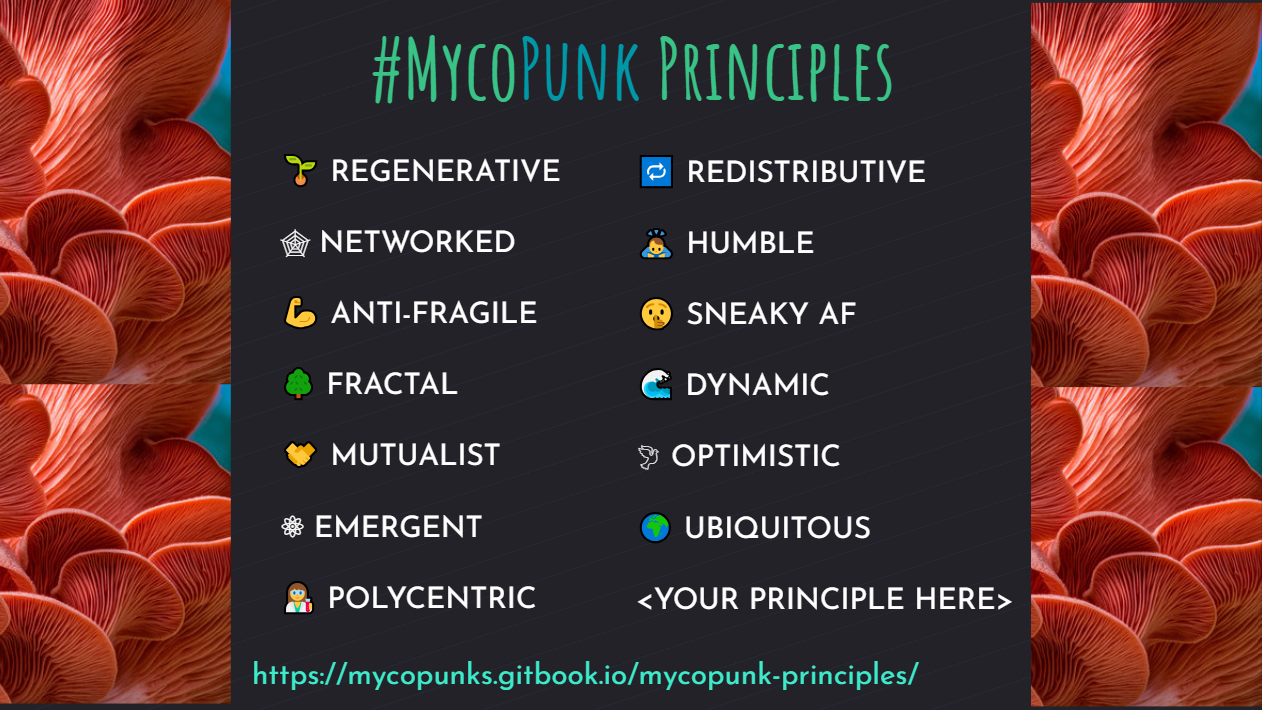
These principles guide our exploration of regenerative economic systems—from the humble mycelial networks beneath our feet to the emergent possibilities of decentralized coordination.
Explore the PrinciplesWelcome to the Myco-Economic Future
Dive deeper into regenerative economics and permaculture currencies
Join the Mycelial Network
Subscribe for updates on regenerative economics, mycoeconomics research, and building regenerative futures.
No spam, unsubscribe anytime. We respect your privacy.